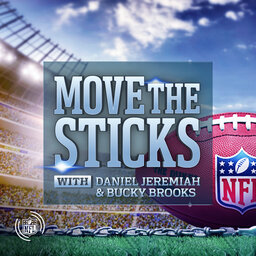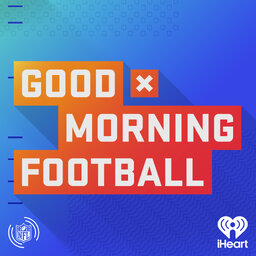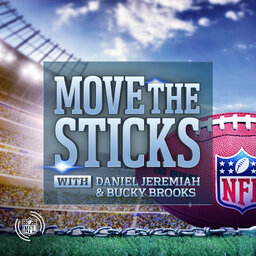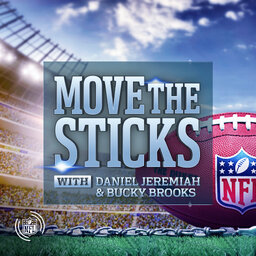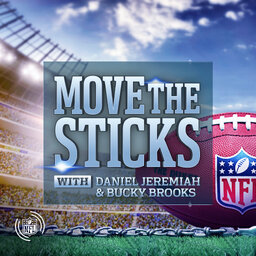Position Prototype - Offensive Line. Identifying what makes the ultimate lineman (Andrew Whitworth, Quenton Nelson, Tyron Smith)
In the latest edition of the Move The Sticks prototype series, DJ & Bucky dive into the offensive line. First, the guys discuss the OL attributes they look for when they're scouting (1:13). Next, we hear from three offensive line experts: 3-time Pro Bowl center Shaun O'Hara (4:16), veteran offensive line coach Paul Alexander (22:20), and Super Bowl-winning OL coach Howard Mudd (34:12). Finally, DJ and Bucky round out the show by naming who they believe to be the prototype linemen of today's game (47:25).
Learn more about your ad-choices at https://www.iheartpodcastnetwork.com
 NFL: Move the Sticks with Daniel Jeremiah & Bucky Brooks
NFL: Move the Sticks with Daniel Jeremiah & Bucky Brooks